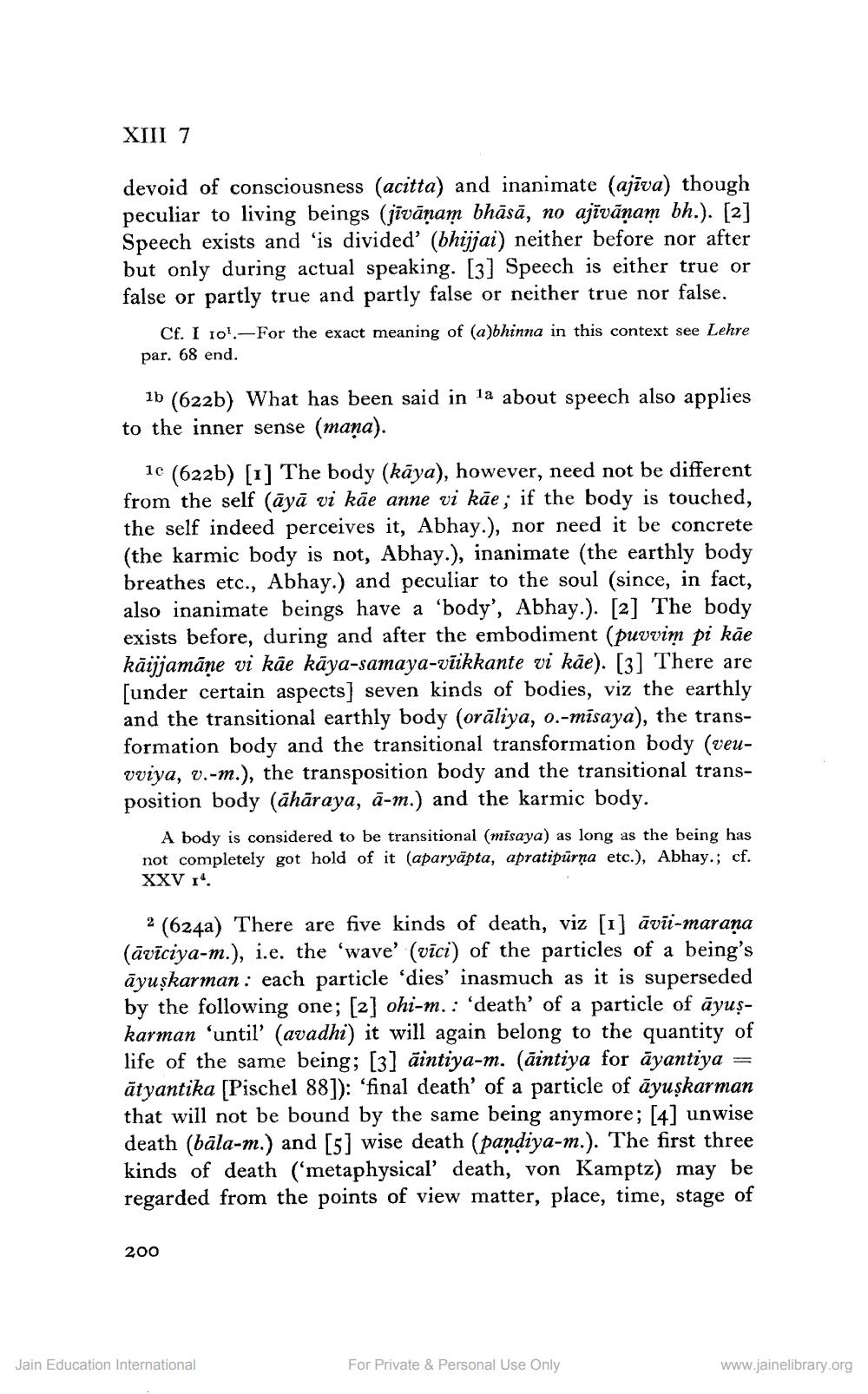________________
XIII 7
devoid of consciousness (acitta) and inanimate (ajīva) though peculiar to living beings (jīvāņam bhāsā, no ajīvānam bh.). [2] Speech exists and 'is divided' (bhijjai) neither before nor after but only during actual speaking. [3] Speech is either true or false or partly true and partly false or neither true nor false.
Cf. I 10.-For the exact meaning of (a)bhinna in this context see Lehre par. 68 end.
1b (622b) What has been said in 1a about speech also applies to the inner sense (mana).
10 (622b) [1] The body (kāya), however, need not be different from the self (āyā vi kāe anne vi kāe; if the body is touched, the self indeed perceives it, Abhay.), nor need it be concrete (the karmic body is not, Abhay.), inanimate (the earthly body breathes etc., Abhay.) and peculiar to the soul (since, in fact, also inanimate beings have a 'body', Abhay.). [2] The body exists before, during and after the embodiment (puvvim pi kāe kāijjamāne vi käe kāya-samaya-vīikkante vi kāe). [3] There are [under certain aspects] seven kinds of bodies, viz the earthly and the transitional earthly body (orāliya, 0.-mīsaya), the transformation body and the transitional transformation body (veuvviya, v.-m.), the transposition body and the transitional transposition body (ähāraya, ā-m.) and the karmic body.
A body is considered to be transitional (misaya) as long as the being has not completely got hold of it (aparyāpta, apratipūrņa etc.), Abhay.; cf. XXV r.
2 (624a) There are five kinds of death, viz [1] āvīi-marana (āvīciya-m.), i.e. the 'wave' (vīci) of the particles of a being's āyuşkarman : each particle 'dies' inasmuch as it is superseded by the following one; [2] ohi-m.: 'death' of a particle of āyuskarman 'until' (avadhi) it will again belong to the quantity of life of the same being; [3] āintiya-m. (āintiya for āyantiya = ātyantika [Pischel 88]): 'final death of a particle of āyuşkarman that will not be bound by the same being anymore; [4] unwise death (bāla-m.) and [5] wise death (pandiya-m.). The first three kinds of death (“metaphysical death, von Kamptz) may be regarded from the points of view matter, place, time, stage of
200
Jain Education International
For Private & Personal Use Only
www.jainelibrary.org




